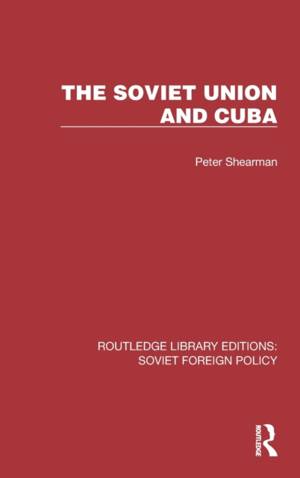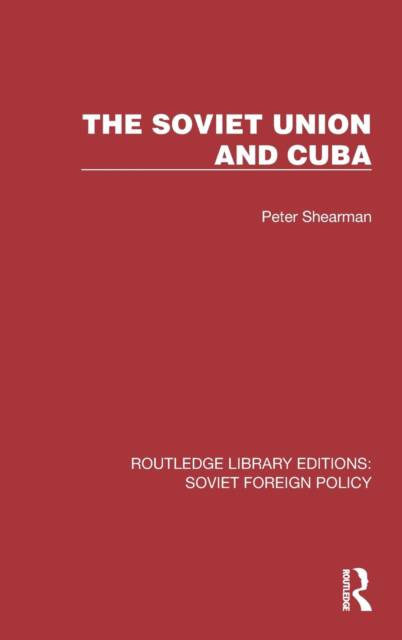
En raison d'une grêve chez bpost, votre commande pourrait être retardée. Vous avez besoin d’un livre rapidement ? Nos magasins vous accueillent à bras ouverts !
- Retrait gratuit dans votre magasin Club
- 7.000.000 titres dans notre catalogue
- Payer en toute sécurité
- Toujours un magasin près de chez vous
En raison de la grêve chez bpost, votre commande pourrait être retardée. Vous avez besoin d’un livre rapidement ? Nos magasins vous accueillent à bras ouverts !
- Retrait gratuit dans votre magasin Club
- 7.000.0000 titres dans notre catalogue
- Payer en toute sécurité
- Toujours un magasin près de chez vous
Description
The Soviet Union and Cuba (1987) examines the thesis that Cuba acted as an extension of Soviet foreign policy or surrogate of the USSR in the Third World. The Soviet-Cuban link is assessed in four conflicts: Angola, Ethiopia, Grenada and Nicaragua. It is shown that Cuba is largely an autonomous actor in international relations, and that bilateral influence flows in both directions. Thus Western reaction to Cuban and Soviet activity in the Third World is often based on misperceptions.
Spécifications
Parties prenantes
- Auteur(s) :
- Editeur:
Contenu
- Nombre de pages :
- 104
- Langue:
- Anglais
- Collection :
Caractéristiques
- EAN:
- 9781032393636
- Date de parution :
- 28-12-22
- Format:
- Livre relié
- Format numérique:
- Genaaid
- Dimensions :
- 156 mm x 234 mm
- Poids :
- 340 g

Les avis
Nous publions uniquement les avis qui respectent les conditions requises. Consultez nos conditions pour les avis.






